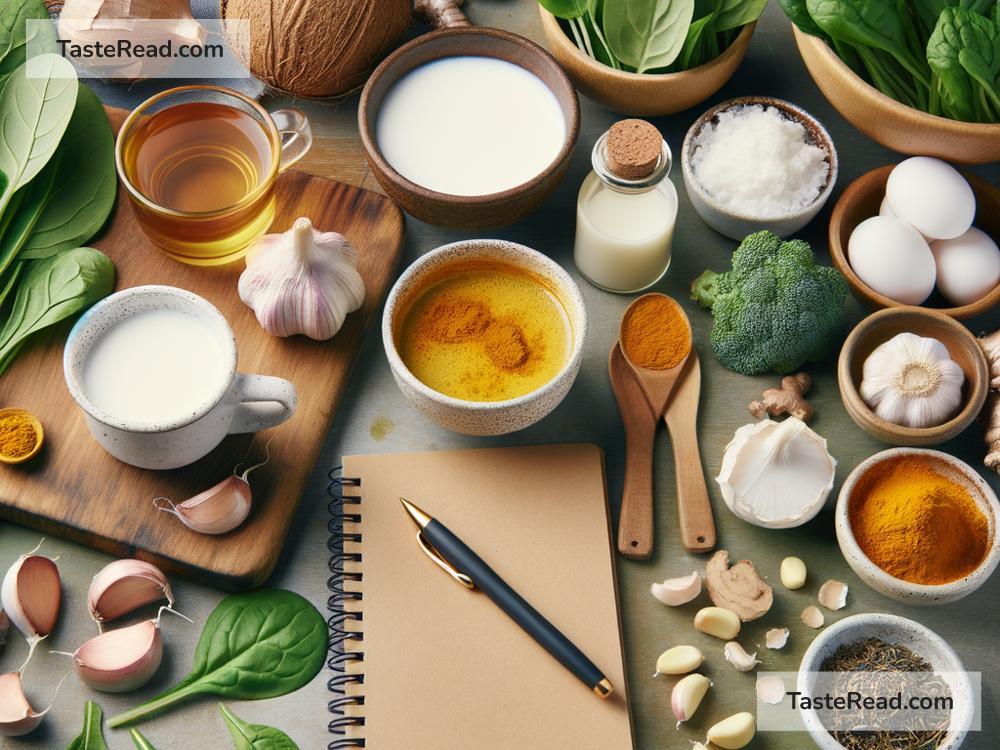Foods That Help Reduce Fungal Infections
Fungal infections can be a frustrating problem. They happen when harmful fungi overgrow in your body, leading to conditions like athlete’s foot, yeast infections, or even digestive issues. What you eat can play a big role in preventing and fighting fungal infections. Thankfully, certain foods have natural properties that help keep fungi in check. In this article, we’ll explore simple and effective foods that can reduce fungal infections.
What Causes Fungal Infections?
Before diving into the foods, let’s take a quick look at what causes fungal infections. Fungi are microorganisms that thrive in warm, moist environments. While some fungi are harmless or even beneficial, others can grow out of control and cause infections. This can happen due to:
- A weak immune system
- Poor hygiene
- Unbalanced gut bacteria
- Overconsumption of sugars and processed foods (fungi love sugar!)
Now that you know the basics, let’s explore some antifungal foods that can help you stay healthy.
1. Garlic
Garlic is a powerhouse when it comes to fighting fungi. It contains a compound called allicin, which has strong antifungal properties. Garlic doesn’t just kill fungi—it also helps boost your immune system. You can add fresh garlic to your meals or even eat a raw garlic clove daily if you don’t mind the strong flavor. Another option is to mix crushed garlic with olive oil and use it as a salad dressing.
2. Coconut Oil
Coconut oil is a natural antifungal food that contains medium-chain fatty acids, especially lauric acid. These fatty acids kill harmful fungi and help restore balance in your gut. Make sure to use extra virgin coconut oil for the best results. It’s versatile—you can cook with it, add it to smoothies, or even use it topically for fungal infections on the skin.
3. Yogurt and Other Probiotic Foods
Probiotic-rich foods like yogurt, kefir, and kimchi are excellent for fighting fungal infections, especially those caused by an imbalance in gut bacteria. When your gut has healthy bacteria, it’s harder for harmful fungi like Candida (a common cause of fungal infections) to spread. Always choose plain, unsweetened yogurt, as sugar can actually fuel fungal growth.
4. Turmeric
Turmeric is a bright yellow spice with a compound called curcumin. Curcumin has antifungal, anti-inflammatory, and immune-boosting properties. Turmeric can be added to soups, stir-fries, or even a warm glass of milk (often called “golden milk”). For better absorption, pair turmeric with a pinch of black pepper.
5. Ginger
Ginger is another strong antifungal food. It helps fight fungal infections, boost digestion, and reduce inflammation in the body. You can use fresh ginger in teas, soups, or smoothies. Even powdered ginger works well in recipes. Its spicy, warming taste makes it easy to add to everyday meals.
6. Apple Cider Vinegar
Apple cider vinegar (ACV) is well-known for its antifungal benefits. It contains acetic acid, which creates an environment where fungi struggle to thrive. ACV also helps balance your body’s pH levels, making it less inviting for fungi. Always use raw, unfiltered ACV for the best results. Mix 1-2 tablespoons of ACV in a glass of water and drink it before meals.
7. Leafy Green Vegetables
Leafy greens like spinach, kale, and arugula are excellent for reducing fungal infections. They are full of nutrients that boost your immune system and create an alkaline environment in your body, which is less friendly to fungi. You can enjoy leafy greens in salads, smoothies, or sautéed dishes.
8. Cinnamon
Cinnamon isn’t just a tasty spice—it’s also a powerful antifungal food. It contains compounds that kill fungi and help control blood sugar levels (high blood sugar can fuel fungal growth). Sprinkle cinnamon on oatmeal, yogurt, or even coffee for an aromatic and healthy touch.
9. Pumpkin Seeds
Pumpkin seeds are rich in zinc, a mineral that strengthens the immune system and fights fungal infections. They also have antifungal fatty acids that can help control fungal growth. Snack on a handful of pumpkin seeds, or sprinkle them onto salads and smoothies.
10. Lemons
Lemons are acidic in taste but alkaline-forming once digested, making them helpful for creating a less hospitable environment for fungi. They are also rich in vitamin C, which supports your immune system. Add fresh lemon juice to water, tea, or salad dressings.
Foods to Avoid
Reducing fungal infections isn’t just about eating the right foods—it also involves avoiding certain ones. Sugary foods, refined carbs, and alcohol can feed harmful fungi, allowing them to grow. Try to limit or avoid these in your diet.
Final Thoughts
Fungal infections can be stubborn, but a healthy diet can make a big difference. Incorporating natural antifungal foods such as garlic, coconut oil, yogurt, and turmeric can help reduce fungal infections and strengthen your immune system. Pair these foods with good health habits like keeping your skin dry, practicing hygiene, and staying hydrated.
Remember: while these foods can help with fungal infections, severe or persistent cases should be treated by a doctor. Adding these antifungal foods to your lifestyle, however, is a simple and natural way to support your body and keep fungi at bay.


